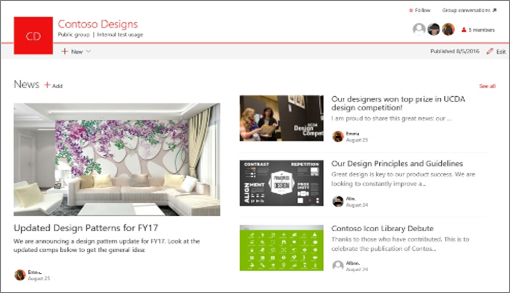International News Online Fundamentals Explained
International News Online Fundamentals Explained
Blog Article
All About International News Online
Table of ContentsInternational News Online Can Be Fun For AnyoneThe Basic Principles Of International News Online Excitement About International News OnlineThe Only Guide for International News OnlineNot known Details About International News Online
The system's name change occurred in July 2023.) Some social networks websites despite having fairly tiny total target markets stick out for having high shares of individuals who frequently go to the website for information. As an example, roughly half of users on X (53%) get information there. On the various other hand, just 15% of Snapchat users on a regular basis obtain information on the app.
journalists, yet not for the general public, June 27, 2022 Information on Twitter: Taken In by Many Individuals and Trusted by Several, Nov. 15, 2021 Greater than eight-in-ten Americans get information from digital devices, Jan. 12, 2021 Measuring Information Intake in a Digital Age, Dec. 8, 2020 Numerous Americans Obtain Information on YouTube, Where Information Organizations and Independent Producers Thrive Side-by-side, Sept.
What Does International News Online Mean?
When asked whether social media is an excellent or bad point for democracy in their country, a typical of 57% throughout 19 countries claim that it is an excellent point (International News Online). In nearly every nation, near half or more claim this, with the sentiment most usual in Singapore, where roughly three-quarters believe social media is a good idea for democracy in their country.
And in the U.S., just around a 3rd think social media declares for democracy the tiniest share among all 19 countries checked. In 8 nations, those that think that the political system in their country allows them to have an influence on politics are also a lot more most likely to claim that social media sites is a good idea for democracy.
Those who view the spread of incorrect details online as a significant danger to their nation are much less most likely to say that social media is an excellent thing for freedom, compared to those that watch the spread of false information online as either a small hazard or otherwise a threat at all.
About International News Online
Older grownups in 12 countries are less most likely to claim that social media is an excellent thing for democracy in their nation when contrasted to their more youthful counterparts. In Japan, France, Israel, Hungary, the UK and Australia, the void between the youngest and oldest age groups is at the very least 20 portion factors and varies as high as 41 points in Poland, where almost nine-in-ten (87%) more youthful grownups claim that social media has been a good thing for democracy in the country and only 46% of grownups over 50 state the very same.
Throughout the 6 problems tested, few often tend to state they see no changes due to boosted connectivity rather seeing things changing both favorably and adversely and typically both at the same time (International News you can try here Online). A typical of 84% state technical connectivity has made people less complicated to adjust with false info and reports one of the most amongst the six concerns checked
Indeed, in the majority of countries, those that assume social media sites has actually made it simpler to adjust people with false information and rumors are likewise most likely to assume that social media sites has made people extra educated. When it concerns national politics, the web and social media are generally seen as disruptive, with an average of 65% saying that individuals are now more divided in their political point of views.
About International News Online
This feeling of risk is connected to the extensive idea that individuals today are currently simpler to control with incorrect details and reports thanks to the web and social media sites. Around half or even more in every nation surveyed shares this view. And in areas like the Netherlands, Australia and the UK, around nine-in-ten see individuals as even more manipulable.
In South Korea, 90% of those under age 30 say social media makes people much easier to manipulate, compared with 65% of those 50 and older. (Remarkably, U.S.-focused research study has actually located older grownups are more probable to share misinformation than younger ones.) Individuals with more education are additionally frequently extra most likely than those with less education and learning to say that social media has actually resulted in individuals being easier to manipulate.

The 7-Minute Rule for International News Online
In Sweden, Japan, Greece and the Netherlands, around discover here eight-in-ten or more share this sight, while in Malaysia, a smaller sized majority (56%) claims the very same. Younger adults tend to see social networks making people more educated than older grownups do. Older grownups, for their component, don't always see the internet and social media sites making people much less informed regarding what's taking place in their nation; instead, they're somewhat most likely to define these systems as having little impact on people's details levels.

Report this page